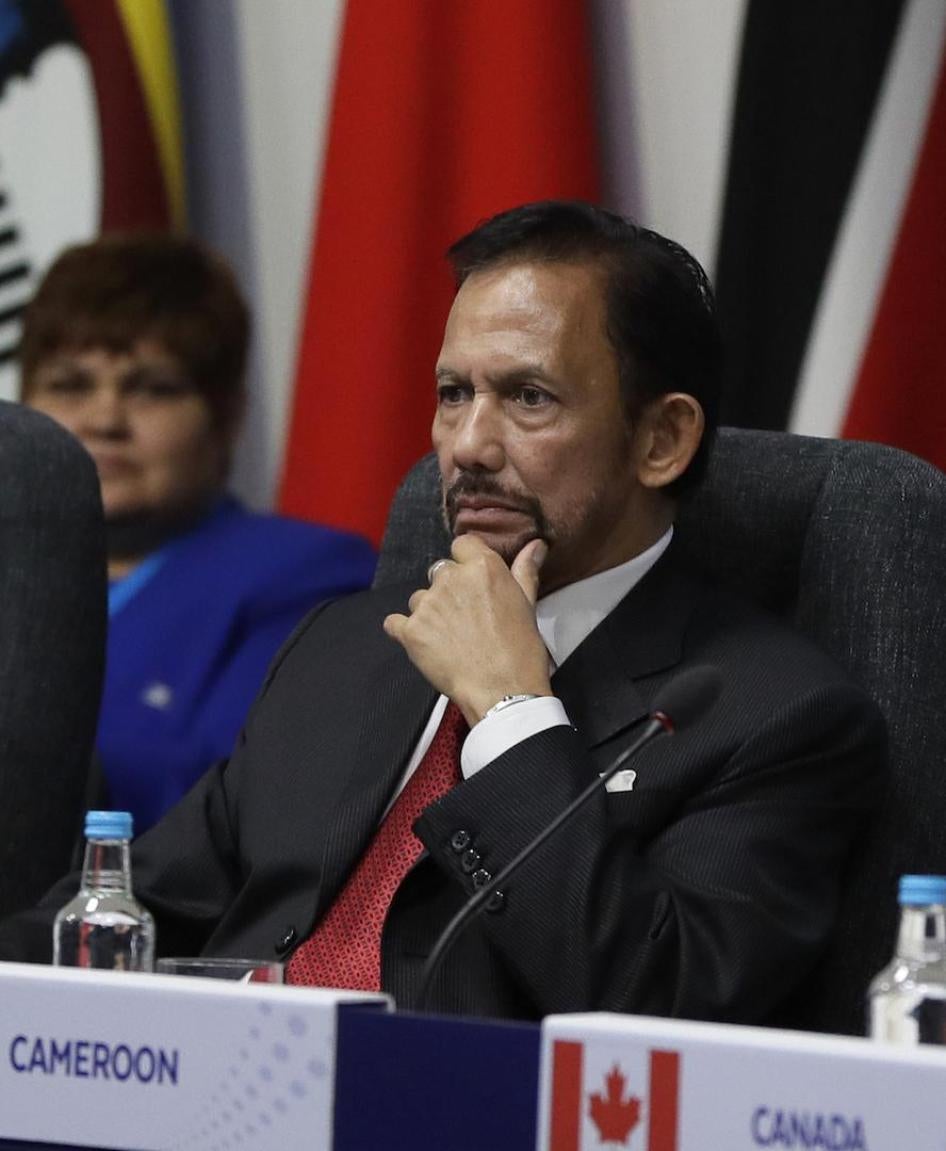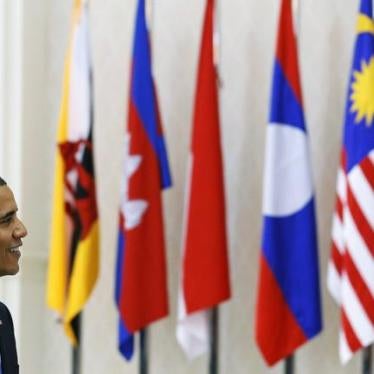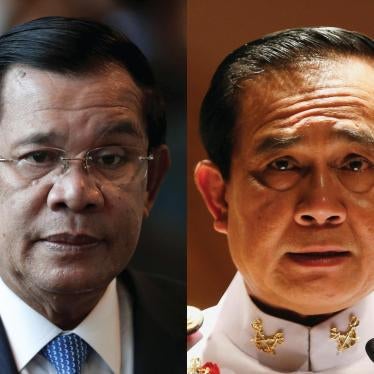(Kuala Lumpur) – The Brunei government’s introduction of a new Sharia penal code poses grave threats to basic rights, especially for the country’s most vulnerable people, Human Rights Watch said today.
The penal code, which goes into effect on April 3, 2019, requires death by stoning for extramarital sex and anal sex; amputation of limbs for stealing; and 40 lashes with a whip for lesbian sex. Abortion is also criminalized. Children who have reached puberty and are convicted of offenses can receive the same punishments as adults; certain younger children may be subjected to whipping.
“Brunei’s new penal code is barbaric to the core, imposing archaic punishments for acts that shouldn’t even be crimes,” said Phil Robertson, deputy Asia director. “Sultan Hassanal should immediately suspend amputations, stoning, and all other rights-abusing provisions and punishments.”
Sultan Hassanal Bolkiah first formally published the Sharia, or Islamic Law, Syariah Penal Code Order in October 2013. At that time, the government stated it would implement the new law in three phases. The first phase would enact the provisions punishable by fines or imprisonment in April 2014. The second and third phases would then be introduced over the next two years, implementing provisions that included punishments such as amputation, whipping, or stoning to death. Following an international outcry over the severity of the punishments, the government delayed further implementation of the law. However, on December 29, 2018, Brunei’s attorney general quietly issued a notification that the law would be enacted in full on April 3.
On March 30, the Prime Minister’s Office sought to contain global outrage against the new law, issuing a statement that the code aims to “respect and protect the legitimate rights of all individuals.” Claims that this draconian law respects rights are without basis.
Brunei should immediately withdraw the order enacting Syariah Penal Code Order 2013, and amend its provisions in accordance with international human rights standards.
“Every day that Brunei’s penal code is in force is a multifaceted assault on human dignity,” Robertson said. “Governments around the world should make clear to Brunei’s sultan that there can be no business as usual so long as the threat of whipping, stoning or amputation remains on the books.”
How Do Punishments Included in Brunei’s Sharia Penal Code Violate International Human Rights Law?
Provisions of the Sharia penal code violate Brunei’s obligations under international human rights law, including the rights to life, freedom from torture and other ill-treatment, expression, religion, privacy, and individual autonomy, among others. The code is discriminatory on its face, and violates many rights of women, children, and lesbian, gay, bisexual, and transgender people, among others.
The punishments provided under the new code violate customary international law prohibitions against torture and other ill-treatment, as reflected in the Universal Declaration of Human Rights, and treaties to which Brunei is party, such as the Convention on the Rights of the Child. The use of stoning or intentional amputation as a punishment violates the absolute prohibition of all forms of torture, and other cruel, inhuman, or degrading treatment or punishment.
The United Nations Human Rights Committee has said in its General Comment No. 36 that “under no circumstances can the death penalty ever be applied as a sanction against conduct” that is protected by international law, including adultery and homosexuality. Retaining the death penalty for such “offenses” is a form of arbitrary deprivation of life and violates Brunei’s international legal obligations.
The code also imposes the death penalty for some forms of robbery and rape, and for insult or defamation of the Prophet Mohammad (articles 63, 76, 220) by both Muslims and non-Muslims. This is inconsistent with the international principle that the death penalty should be reserved for only “the most serious crimes,” namely those involving intentional killing.
How does Brunei’s Sharia Penal Code Violate Freedom of Expression?
The new Sharia penal code punishes both Muslims and non-Muslims for printing, disseminating, importing, broadcasting, and distributing publications against Islamic beliefs (articles 213, 214, and 215). This is an excessive and disproportionate restriction on the rights to freedom of expression and religion.
The law also punishes “indecent” dressing and cross-dressing (articles 197, 198), which arbitrarily restricts freedom of expression and association and privacy rights, and constitutes a form of discrimination on the basis of gender expression.
How Does Brunei’s Sharia Penal Code Harm Women, LGBT People, and Children?
The Sharia penal code sets up serious barriers for Muslim women to escape violent marriages or seek equal employment opportunities. It criminalizes anyone who prevents a legally married Muslim couple living together or “entices” married Muslim women to leave their matrimonial home and similarly, punishes those who leave the custody of their parents or guardians. The law also punishes Muslim women for pregnancy outside of marriage (article 94). However, the attorney general’s order of December 29, 2018, exempted article 94 from immediate implementation starting on April 3.
The code makes consensual same-sex acts illegal and punishable by death or by whipping. It institutionalizes discrimination against lesbian, gay, and bisexual people in its most severe form. At a time when many countries are decriminalizing consensual same-sex conduct, Brunei is joining seven countries that punish consensual homosexual acts with the death penalty. The law also attempts to legislate transgender people out of existence by prohibiting dressing in the attire associated with a different sex.









